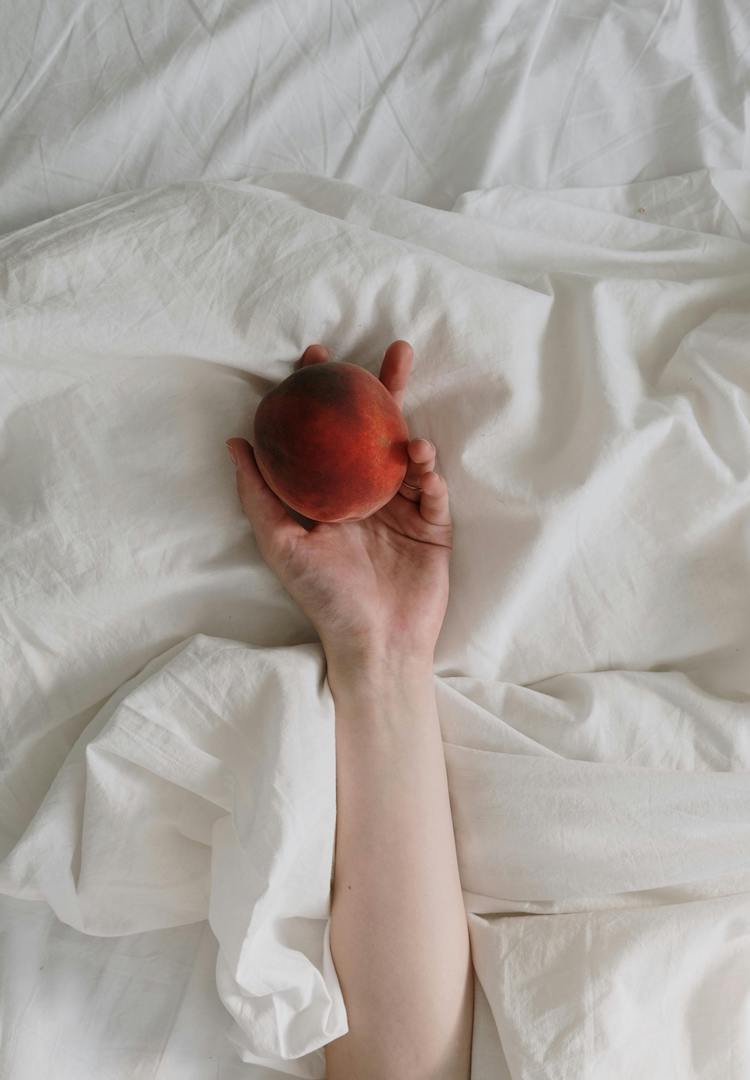What’s the connection between the gut and mental health?
WORDS BY HANNAH COLE
Could the cure come from within?
If we lived life according to Hippocrates, we would spend each day going on multiple walks (it’s man’s best remedy, apparently), treating food as medicine and nourishing the body and the mind. A picture of health achieved in the most basic and simplest ways; he could just be the original wellness advocate.
Hippocrates’ study revolved around a healthy mind and healthy body, and understanding the connection between the two. “All disease begins in the gut,” goes one of his most famed quotes. More than 2,000 years later, we’re still learning how the two are so inextricably intertwined.
For more content like this, browse through our Life section.
Lately, my conversations with my friends have morphed from boys and shopping to tummy problems and mental health issues (we like to keep it real). Talk of IBS and leaky gut, parasites and dysbiosis get a lot of air time as we divulge our triggers and concerns.
Often, a seemingly small issue triggers massive and impactful flow-on effects; the physical impact can be debilitating, but so can the mental. The gut is our ‘second brain’, after all. Is responding to and caring for our gut the secret to optimal health and self-care?
What is gut flora?
Within our gut is a delicate array of microbes – bacteria, viruses and yeasts – that help us maintain our health. This collective of microbes is better known as gut flora (or the microbiome). There are “over 100 trillion or so bacteria that live along our gastrointestinal system, which runs all the way from our mouth to our anus. Each part of our gut has a different climate and therefore different species that colonise there,” says Sydney-based naturopath Jaclyn Cave.
According to Cate Lilja, the co-founder of ingestible skincare brand Opty.Nc, gut flora helps us digest our food and “metabolise certain dietary components to make them bioavailable so we can absorb them”. Naturopath Gia Fugar adds that they’re also “responsible for extracting the vital nutrients we need from food to thrive”.
“The interplay between your gut flora and digestion then ultimately dictates your immune health, brain health, hormone health, and metabolic health. If you experience bloating, gas, constipation, diarrhoea, or reflux, there is a good chance that your gut microbiome is not happy,” Gia explains.
Explaining the mind-gut connection
The mind-gut connection “describes the two-way highway of communication between our gut and our brain,” says Jaclyn. “This connection describes why we feel ‘butterflies in the stomach’, or that stomach drop feeling when you receive some big news. It also is the reason why our bowel motions may change in times of excitement, stress, or anxiety. Thank you gut-brain axis!”
Naturally, it affects our overall mental health as the community of bacteria “play[s] a huge role in regulating neurotransmitter function,” according to Gia. If there is damage to the gut lining, inflammation or an imbalance of the various species, this may throw things off and impact our mental state.
“Depression and anxiety are commonly associated with low levels of lactobacillus and bifidobacterium species,” while “overgrowth of gram-negative bacteria including morganella and citrobacter,” also has a negative impact on our mental health. Importantly, a whopping 95 per cent of our body’s serotonin (the feel-good hormone) is produced in the gut. Now, tell me your gut health doesn’t matter?
Boosting your gut flora
To some degree, it’s comforting to know that part of the solution or remedy lies in our gut. There is an element of control and power, albeit a tricky one – it’s not necessarily a quick and easy fix. But you can start by viewing boosting and supporting your gut flora as another tool in your mental health box.
The three experts I spoke to gave me hot tips on promoting healthy gut flora in order to support your brain and your body. Unsurprisingly, it starts with your diet. If you’re concerned, the first step is to avoid inflammatory foods like sugar and gluten. Focus on adding more healthy fats to your diet instead (they fill you up and are also great for your skin, bones and sleep). Tasty foods like ghee, avocado, fish and nuts are great sources.
You should also consider taking prebiotics and probiotics. As Jaclyn explains, prebiotics are indigestible by the stomach and small intestine, so they travel to the large intestine. There, “our bacteria ferment these fibres and produce beneficial gases such as short-chain fatty acids (SCFAs),” which are beneficial to the colon and overall health.
Without prebiotics, probiotics are useless, so it’s vital to include both. Garlic, onion, seaweed and flaxseeds are prebiotic-rich; stock up on fermented goods like sauerkraut, kimchi, yoghurt and miso to enhance your probiotics.
Make sure you’re eating enough fibre (roughly 25g for women and 30g for men per day) and consume the rainbow. “Brightly coloured foods are a plus as they contain polyphenols and antioxidants which are beneficial to our microbiome,” says Jaclyn.
As Cate points out, we need to make lifestyle changes too. Remove things that throw out the balance between good and bad bacteria (picture the Inner Health Plus see-saw ad): smoking, drinking too much alcohol, sustained high stress, poor sleep, and lack of exercise. Yes, yes, yes, you’ve heard it all before. The thing is, it makes a difference.
“When we heal the gut and correct our gut flora, we are utilising a new avenue to support mood in a period of mental health crisis,” explains Gia. As it turns out, Hippocrates was well ahead of his time.
For more on the gut-brain connection, try this.










